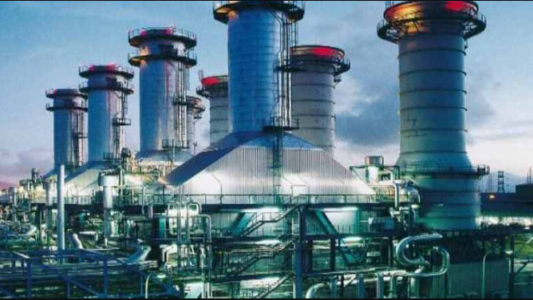New entity to aggregate gas demand from power companies, aiming to reduce volatility and ensure supply security.
SINGAPORE: In a bid to mitigate extreme fluctuations in electricity prices driven by energy shortages, the Singapore government will introduce an entity to centralise the procurement and supply of gas for the power sector.
Currently, each power generation company (genco) independently determines the volume and tenure of gas to procure, based on its own commercial considerations. The newly proposed entity will aggregate these gas demands to ensure a more stable and reliable supply for Singapore’s electricity needs.
Announcing the framework at the Singapore International Energy Week (SIEW) on Monday (Oct 23), Minister for Trade and Industry, Gan Kim Yong, emphasized the importance of a stable energy system in the nation’s transition towards net zero emissions. He noted that the global energy crisis, exacerbated by the war in Ukraine, highlighted the vulnerabilities in Singapore’s energy procurement system.
“During the global energy crisis, countries had to resort to using coal plants to keep electricity prices down. We must avoid such situations,” Mr Gan said. “Our current gas procurement framework, which relies on individual power generation companies, does not guarantee a reliable supply of gas when market conditions are uncertain.”
Given that 95% of Singapore’s electricity is generated from natural gas, the need for secure and reliable supplies is crucial as the global energy market becomes increasingly volatile.
GASCO TO BE ESTABLISHED BY 2024
The Energy Market Authority (EMA) plans to establish the new centralised procurement entity, tentatively named Gasco, by 2024. This move follows the global energy crunch last year, when electricity prices soared due to shortages of fossil fuels, disruptions in renewable energy production, and rising oil and gas prices.
Before this, Singapore’s electricity market was severely tested by surging gas prices in 2021. Gencos were reluctant to enter long-term gas contracts due to the unpredictability of global gas prices. This reluctance led to gas shortfalls, causing electricity prices to spike and forcing several electricity retailers to exit the market.
EMA highlighted the weaknesses of the existing procurement system, explaining that when each genco optimises its own procurement, it can lead to inefficiencies at the system level. “Gencos have been reluctant to sign long-term contracts, which would offer greater price stability, due to concerns over market volatility,” the EMA said.
A STRONGER POSITION FOR GASCO
Under the new framework, Gasco will act as the sole procurer of upstream gas for the power sector, placing it in a better position to negotiate favourable contract terms. With its centralised role, Gasco will have economies of scale and can secure gas from diversified sources, reducing risk from market fluctuations.
If total electricity demand exceeds the amount forecasted by the gencos, Gasco will be responsible for procuring the additional gas required. It will also have the flexibility to enter long-term contracts, providing more stable prices and reducing uncertainty for the power sector.
Existing gas supply contracts between gencos and their suppliers will remain intact, while industrial gas customers will continue to source gas through licensed importers, unaffected by the new procurement framework.
MOVING TOWARDS A STABLE AND SECURE ENERGY SYSTEM
The centralisation of gas procurement is part of Singapore’s broader effort to ensure a stable and secure power system while progressing with the energy transition. The authorities have already implemented several guardrails, including a temporary price cap mechanism for the wholesale electricity market, to protect consumers from extreme price fluctuations.
The government will consult the industry on the details of the centralised gas procurement framework over the coming months. Mr Gan described the shift as necessary to create a more reliable energy system that will benefit consumers and gencos alike, enabling Singapore to continue its energy transition with greater confidence.








